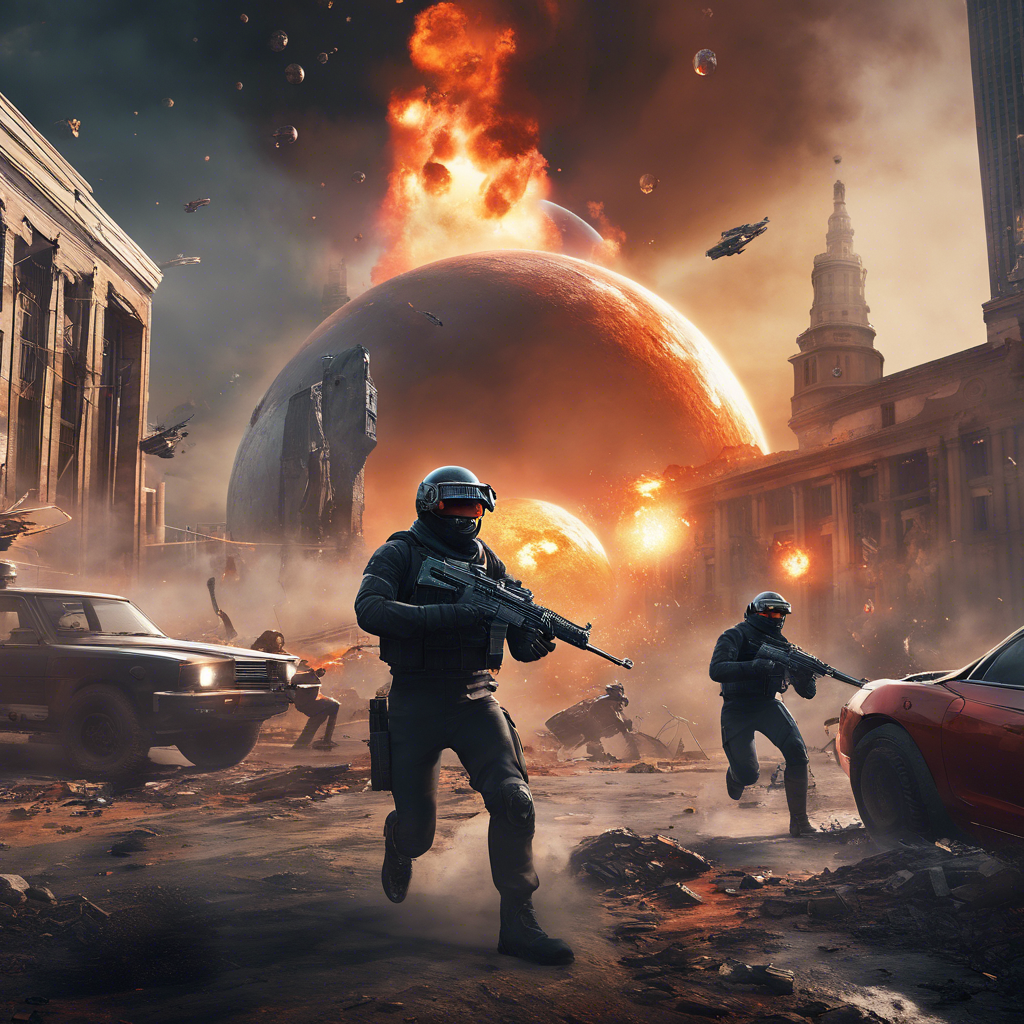Phantom Doctrine is a turn-based strategy game that delves into the world of espionage, pitting players as the head of a secret organization against rival agencies. The game boasts a unique blend of exploration, base-building, and tactical combat. This review will provide an in-depth analysis of the game, covering technical aspects, gameplay mechanics, narrative elements, content breakdown, and critical analysis.
Technical Analysis
The game’s **graphics and visual fidelity** are notable, with detailed character models and environments. Specific examples of standout visual moments include the **CIA’s Langley headquarters**, which features intricate details and realistic architecture. The **Mossad’s Tel Aviv base** is also visually impressive, with a blend of modern and traditional Israeli design elements. The game’s use of lighting and shadows adds to the overall immersion, making the environments feel more realistic.
In terms of **performance across different platforms**, Phantom Doctrine runs smoothly on PC, with **frame rates ranging from 60-120 FPS** at **1080p resolution**. Console versions also perform well, with **frame rates ranging from 30-60 FPS** at **900p resolution**. The game’s **sound design and music** are also noteworthy, with a haunting soundtrack that complements the game’s atmosphere. Specific tracks, such as **”The Spy Who Came in from the Cold”**, perfectly capture the mood of the game. Sound effects, like the **sound of gunfire and explosions**, are also realistic and immersive.
Load times are relatively short, with **average loading times ranging from 10-20 seconds**. However, some players may encounter **technical issues**, such as **texture pop-in** or **minor framerate drops**. These issues are relatively rare and do not significantly impact the overall gaming experience.
Gameplay Mechanics
The **core gameplay loop** involves gathering intelligence, infiltrating enemy bases, and conducting operations to disrupt rival agencies. The game’s **control scheme** is responsive, with a **button mapping** that allows for easy navigation and camera control. The **input lag** is minimal, making it easy to execute precise actions during missions.
One of the game’s **unique features** is the **”Brainstorming” system**, which allows players to analyze and connect clues to uncover hidden plot threads. This mechanic is revolutionary, as it adds a layer of complexity and depth to the game’s narrative. The **combat system** is also notable, with a **combo system** that rewards players for using clever tactics and strategic positioning.
The game’s **progression system** is based on a **leveling system**, where players can upgrade their agents and unlock new skills and abilities. The **skill tree** is extensive, with multiple branches and specializations, allowing players to tailor their agents to specific roles and playstyles.
Narrative Elements
The **main storyline** is engaging, with a complex web of intrigue and deception. The game’s narrative is full of **major plot twists**, including the **revelation that the CIA is secretly working with the KGB**. This twist completely upends the player’s understanding of the game’s world and raises questions about the true nature of the conflict.
Character development is also a strong aspect of the game, with **standout characters** like **Agent Rachel**, a brilliant and resourceful operative who becomes a key player in the story. Her character arc is **particularly noteworthy**, as she navigates the complex world of espionage and confronts her own demons.
Key plot points include the **infiltration of the Mossad’s Tel Aviv base**, which is a **tense and challenging mission** that requires careful planning and execution. The **confrontation with the KGB’s Director** is also a **memorable moment**, as it marks a turning point in the story and sets the stage for the game’s final act.
The **quality of dialogue and voice acting** is high, with **standout performances** from the voice cast. The dialogue is **well-written and engaging**, with a focus on character development and plot progression.
Content Breakdown
The game’s **main story** can be completed in **around 20-25 hours**, depending on the player’s skill level and level of exploration. The game also features **a range of side content**, including **10 side missions** that provide additional context and backstory.
The **replayability factors** are high, with a **New Game+ mode** that allows players to restart the game with upgraded agents and new challenges. The game also features **multiple endings**, depending on the player’s choices and actions throughout the story.
In terms of **DLC or post-launch content plans**, the developers have confirmed **two upcoming DLC packs**, which will add new story missions, characters, and game mechanics. These packs will **expand the game’s world and story**, providing additional context and depth to the game’s narrative.
Critical Analysis
Phantom Doctrine is a **standout game** in the strategy genre, with a **unique blend of exploration, base-building, and tactical combat**. The game’s **complex narrative** and **deep characters** make it a compelling and engaging experience.
In comparison to similar games, Phantom Doctrine **excels in its focus on espionage and strategy**. The game’s **brainstorming system** and **combo system** are particularly noteworthy, as they add a layer of complexity and depth to the game’s mechanics.
The **value proposition** is high, with a **rich and engaging game world** and **extensive gameplay mechanics**. The game’s **price point** is **reasonable**, considering the amount of content and replayability on offer.
The **target audience** for Phantom Doctrine is **fans of strategy games and espionage fiction**. The game’s **complex gameplay mechanics** and **deep narrative** make it a great fit for players who enjoy **challenging and immersive experiences**.
Overall, Phantom Doctrine is a **must-play game** for fans of strategy and espionage. With its **rich game world**, **complex narrative**, and **deep gameplay mechanics**, it offers a **unique and engaging experience** that is not to be missed.
